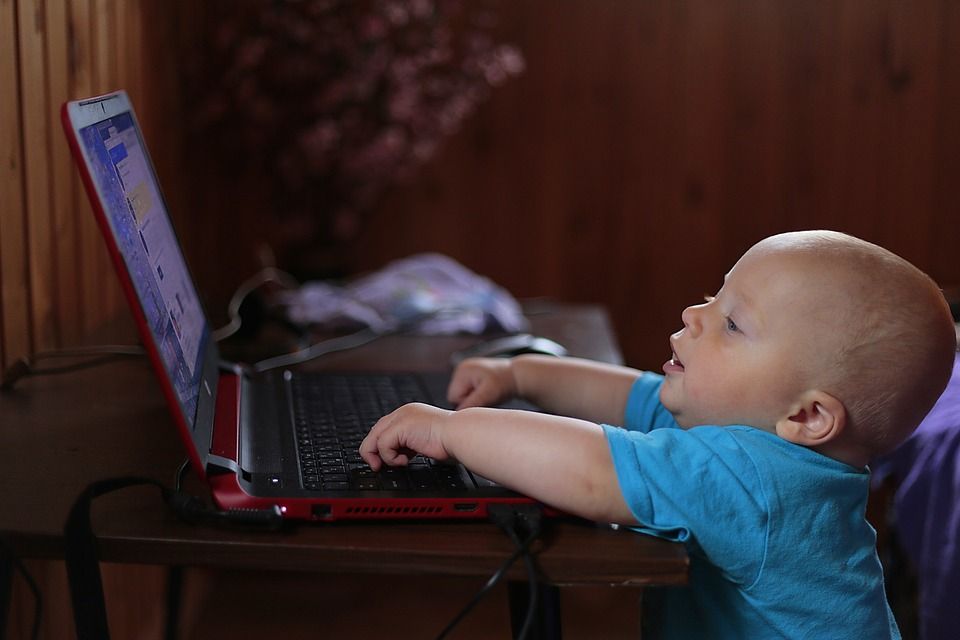Business
How to create good online habits and own your digital time
Excessive internet use can lead to bad consequences but permanent removal cannot be the answer.

The slow but steady outcry has been building up: do an online and digital detox. Give your smart devices a rest for a couple of hours. Parents decry that family dinner is ruined by children doing instant messaging, oblivious to the conversation happening around them. Teachers warn that excessive gaming is ruining their students’ academic performance and real-time, offline interactions.
Employers have blocked social media sites and games in the workplace because these cause a decline in productivity. This is especially the case when team members are inclined to drop everything just to catch the latest virtual creature released by Pokémon Go.
The numbers do support the sounds of the alarm bells. The Internet Live Statistics says 3.5 billion or 40 percent of the overall global population are online. Movie Tech Geeks reporting that 15 million users in the U.S. prefer to hole up at home to binge on videos instead of playing sports or hanging out with their friends.
It goes on to say that online users feel acute pains of withdrawal should something disrupt their online activity, like bad Wi-Fi signals or the theft of a smartphone; anxiety and nervousness are just a few of the reactions.
However, it was the article written by Dr. Nicholas Kardaras on The New York Post that published scientific results showing cause for alarm for excessive online or mobile device use. Physicians and medical researchers have discovered that the habit affects the human brain similar to drug use like cocaine.
Technology raises the levels of dopamine, the “feel-good” chemical which infuses us with pleasure during moments of extreme happiness like sex. Online activities become linked to the cerebral cortex and its functions like decision-making. A MRI-scanned image of the brain of a child or teen blasting virtual dragons is identical to that of a “brain on drugs.”

Going online can make us happy but can also get us addicted. (Source)
At the same time, Emily Reynolds argues in The Guardian that the total cutoff of online activity is unrealistic. Don’t throw away the baby with the bathwater is one way of putting it. Reynold opines, “But the internet is also an extremely powerful tool for good, especially for the mind. Though I can often get sucked in, it can also act as a lifeline in times of severe distress, providing comfort, distraction and sometimes even emergency support.”
She concludes that it’s all about balance. “It’s not a matter of giving up Facebook for weeks at a time or ignoring rafts of emails. Rather, being mindful of the way we use the internet, and the negative impact that it can have on us, may provide a better solution than switching off completely.”
Here are a few tips to create and maintain that balance, connecting online productively without developing an addiction to it:
Curb your click urges
Control what you click or tap. Your boss does not have to do it for you. During work hours, disable push notifications from non-work-related sites and apps. Resist the urge to check on your friend’s latest Slack thread or out-of-town photos uploaded on Instagram. At work, instant messaging should be reserved for urgent family matters or colleagues reporting to you from the field.
Consider mobile silence golden
Put your phone on silent mode and put it face down during actual personal meetings. Business.com extols the power of conversation by pointing out that clients, partners and other VIPs increase confidence in doing business with you if you engage them in a personal, genuine, and warm dialogue. That means looking them in the eye, responding to their emotional nuances, and giving them your undivided attention. Prioritizing their interests over your phone’s ringtone can be the first step in inking a deal.
Develop an online-offline regimen
Create a system where you can regulate your internet or online habits, and even indulge in some of your favorite activities. With phones on limited access at work or with family, allow yourself a set time every day where you can enjoy everything online to your heart’s content.
Have a fixed schedule and a set amount of hours where you can do social media stuff with your friends Find a day to catch up on your Netflix shows, and just browse for the fun of it. This is when you’re fully online-ready: check your Wi-Fi connection. Charge your mobile devices. Make sure your network connection or signals won’t fail with your network extenders on hand. Knowing that you have a regular online “me time” actually makes the reduction of internet use during work hours more doable and less of a struggle.

Maintain a balance when it comes to your online time and real-life interactions. (Source)
Start the day without digital noise
Meditate in the morning, Beliefnet advises. As soon as you wake up, find a quiet place. Then, let your mind focus on the things that will give you a positive disposition and keep engaged for the rest of the day. Meditation takes many forms: yoga, prayer, scriptural study, or even just keeping still. It lessens your stress and susceptibility to anxiety. It will also help you become more alert to the urgencies of the day without giving in to its worries. By empowering you to focus on the world outside and your internal responses to its challenges, it will lessen your online and digital dependence.
Drift to sleep on a silent night
Turn off all electronic and lighting devices 30 minutes before you go to bed. These include TV, smartphones, laptops, computers, and any bright light. Similar to this advice from eMaxHealth, doctors have advocated this near neuro-shutdown to relax your brain. It will usher in the kind of deep sleep that will give you hours of rest and relieve you of the day’s pressures.
Technology, regardless of the high it gives us, will always be a tool, unless we allow it to dictate our behavior. Excessive internet use can lead to bad consequences, but permanent removal can never be the answer. The answer starts with us. Master yourself by creating healthy habits, and you will master the machine.

-

 Impact Investing2 weeks ago
Impact Investing2 weeks agoEnfinity Launches First Solar Plant in Italy with Microsoft
-

 Markets7 days ago
Markets7 days agoSilver Dips Sharply, While Gold Gains Amid Mixed Stock Market
-

 Crowdfunding2 weeks ago
Crowdfunding2 weeks agoEvenFi Launches Run-Off Service to Protect Investors as Crowdfunding Platforms Exit
-

 Africa4 days ago
Africa4 days agoTunisia Holds Interest Rate as Inflation Eases, Debate Grows
























You must be logged in to post a comment Login